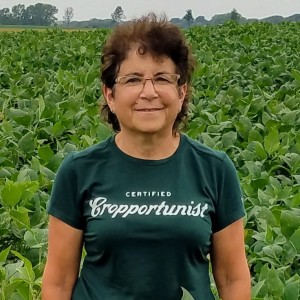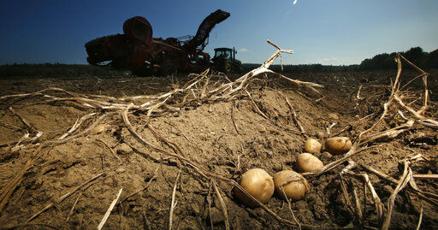 John LaRose Jr.
John LaRose Jr.
Topics: Dairy, Agriculture Global, Economics, Research, Education,
-
(0)
-
Bookmark
- Comments (0)
 Nancy Kavazanjian
Nancy Kavazanjian
Topics: Agriculture Global, Economics, Trade (Commodities),
Real World Economics: Shipping container problem won’t be hauled away
It is too bad Joe Biden and Pete Buttigieg can’t bring Robert McNamara back from the grave to sort out import container confusion that impedes manufacturing and angers consumers. McNamara helped d…
-
(0)
-
Bookmark
- Comments (0)
 John LaRose Jr.
John LaRose Jr.
Topics: Crop Consultant, Agriculture Global, Water, Sustainability, Potatoes, Research, Weather,
-
(0)
-
Bookmark
- Comments (0)
 John LaRose Jr.
John LaRose Jr.
Topics: Agriculture Global, Ag Innovation, World Hunger, Government / Policies, Ag Africa, Education,
NGO promotes smart agric in Gokwe - NewsDay Zimbabwe
The project is funded by the European Union and is being implemented by a German charity organisation, Welthungerhilfe, with the support of Empretec Zimbabwe.
-
(0)
-
Bookmark
- Comments (0)
 John LaRose Jr.
John LaRose Jr.
Topics: Crop Consultant, Agriculture Global, Economics, Sustainability, World Hunger, Ag South America,
https://www.washingtonpost.com/business/brace-yourself-brazil-is-about-to-rock-markets/2021/11/28/1e043922-50a8-11ec-83d2-d9dab0e23b7e_story.html?utm_source=rss&utm_medium=referral&utm_campaign=wp_business
Read More-
(0)
-
Bookmark
- Comments (0)
 John LaRose Jr.
John LaRose Jr.
Topics: Cotton, Commodities, Agriculture Global, Economics, Ag Asia / Pacific, Trade (Commodities), Ag Africa,
Malawi Farmers under-utilizing Chinese funded Cotton ginneries - The Maravi Post
Malawi Farmers under-utilizing Chinese funded Cotton ginneries Agriculture - The Maravi Post
-
(0)
-
Bookmark
- Comments (0)
 John LaRose Jr.
John LaRose Jr.
Topics: Soybeans, Agriculture US, Agriculture Global, Education U.S. MidWest, Sustainability, Transportation, Renewable Energy (Solar/Wind),
Soy-fuel innovations for air travel
Scientists with the Agricultural Research Service (ARS) in Peoria, Illinois, have developed a way to make a better jet biofuel from soybean oil.
-
(0)
-
Bookmark
- Comments (0)
-
(1)
-
Bookmark
- Comments (0)
 John LaRose Jr.
John LaRose Jr.
Topics: Agriculture US, Crop Consultant, Agriculture Global, Fruit, Sustainability, Research, Weather,
Making cranberries more resilient to climate change
Scientists are working around the clock to make cranberry production more sustainable.
-
(0)
-
Bookmark
- Comments (0)
 John LaRose Jr.
John LaRose Jr.
Topics: Precision AG , Livestock/Meat, Agriculture Global, Poultry, Economics, Beef Cattle, Genes /Genetics, Cellular Meat,
Will Lab-grown meat replace traditional meat soon?
Lab cultured meat: Are we going to a synthetic world?
-
(0)
-
Bookmark
- Comments (0)









